A while back, I was at a friend’s small house party. As I was making conversation, I hear a loud voice behind me.
“HELLO EVERYBODY, HOW ARE YOU DOING?”
Everyone turned their heads.
I (and probably everyone else) thought: “Wow, here’s a confident person”
But in a series of events, this person who had made such a confident approach turned out to be the most unlikeable person at the party.
As an example, he went up to my group of people and started talking. Pretty soon, it was obvious that he was more interested in hearing his own voice than others.
After a while, he pointed at my t-shirt and said: “cool t-shirt, I had the same one in college”.
I happened to recognize that very phrase from one of those pick-up videos that came out in the late 2010’s. (He made a schoolbook attempt of what’s called AMOG’ing.)

Me and my typical college t-shirt.
I was kind of ready for something like this from him, so I replied: “I hear that you are interested in pickup”.
He became a bit more polite when he understood I saw through his act.
But later that evening, I heard how some people were talking about “that weird guy who had to talk so loudly all the time”.
Anyway, here’s my analysis of why he acted “confident” like that:
- A few years prior, he’d been an insecure guy
- He thought: “Confident people are popular. Therefore: More confident = more popular”
- He reads advice online and actually learns how to come off as more confident
- He’s still insecure, thinking that he has to “impress people into liking him”
The problem is, you can’t impress people into liking you. Liking happens when people can relate to you.
So if you want to maximize your confidence from a bonding perspective, you don’t need to come off as more confident than the person you’re talking to. It’s enough to come off as equally confident.
Confidence is great to have. It’s helped me to get to places I could never have gotten otherwise. But more isn’t always better.
Most people can’t relate to a really loud person who talks over others and doesn’t listen. That’s why that guy didn’t make any friends at that party: He wasn’t being relatable – he wasn’t even being himself.
He was probably trying to be something he thought was likable, but he forgot the most important principle in the process:
Relatable is likable
People tend to like others who they see that they have things in common with*… They tend to dislike people who intimidate them or who they can’t relate to.
Here’s what that guy could have done to become more relatable and likable at the party (and in life in general):
- He could drop the obnoxiously confident alpha male act (There’s nothing wrong with acting a bit more confident than you actually are, as long as you don’t become a jerk in the process.)
- He could try to get a feel for the social energy level at the party and adapt his own energy to that – this party was rather low-key, so here it would be fitting for him to try being a bit more chill and relaxed
- Most importantly, he should learn to be more curious about others to find mutual interests to talk about when you make conversation. (That’s one of the most powerful ways to become more relatable and likable.)
Have you had any similar experiences with people over-acting their “confidence”? I look forward to reading your stories and questions in the comments below!
*References:
1) Folkes, V. S. (1982). “Forming relationships and the matching hypothesis”. Personality and Social Psychology Bulletin. 8: 631–636.
2) Alvarez, Liliana; Jaffe, Klaus (2004). “Narcissism guides mate selection: Humans mate assortatively, as revealed by facial resemblance, following an algorithm of “self seeking like.” (PDF). Evolutionary Psychology. 2: 177–194. Retrieved February 9, 2011.
3) Heine, Steven J; Julie-Ann B. Foster; Roy Spina (2009). “Do birds of a feather universally flock together? Cultural variation in the similarity-attraction effect”. Asian Journal of Social Psychology. 12: 247–258.
4) Newcomb, T. M. (1963). “Stabilities underlying changes in interpersonal attraction”. Journal of Abnormal and Social Psychology. 66 (4): 376–386.
5) Tidwell, Natasha; Eastwick, Paul; Finkel, Eli (June 2013). “Perceived, not actual, similarity predicts initial attraction in a live romantic context: Evidence from the speed-dating paradigm”. Personal Relationships. 20 (2): 199–215.




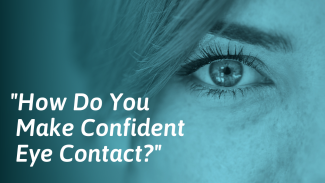

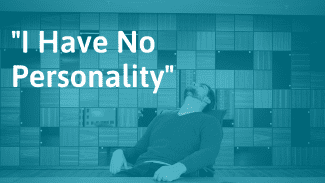



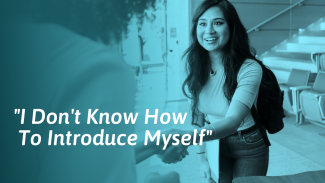
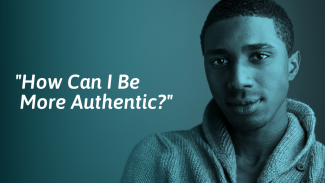
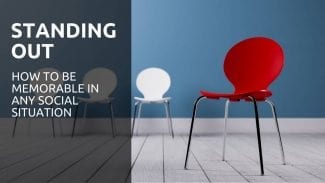
I think a big part of confidence in a social setting is that you use it to make others comfortable. By being interested in example as you mention.
In this case everybody picks up the insecurity consciously or unconsciously I guess. But hey, maybe it was a fake it till you make it approach, and he might actually learn from this mistake 🙂
Main problem was that his social level mismatched the group/atmosphere. A lot of low key people tend to hate loud people and vice versa. Hence I’m not surprised at the reaction he got. It would have worked at a ‘frat boy’ party.
You’re perfectly right Amanda, you need to pick up on the atmosphere!